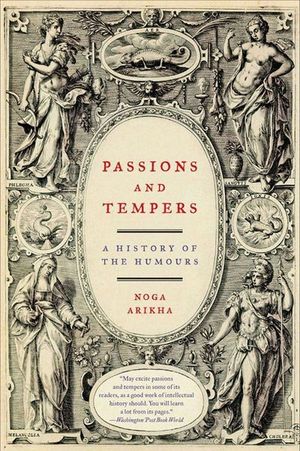Passions and Tempers
This history of the four humours “may excite passions and tempers . . . as a good work of intellectual history should. You will learn a lot from its pages.” (Washington Post).
Physicians in ancient Greece believed four humours—blood, phlegm, black bile, and choler—flowed within the human body, determining a person's health, mood, and character. Not until the seventeenth century would a more complex view of the anatomy begin to emerge. But by then humoural theory had already become deeply ingrained in Western language and thought—and endures to this day in surprising ways.
Interweaving the histories of medicine, science, psychology, and philosophy, Passions and Tempers explores the uncanny persistence of these variable, invisible fluids. Tracing their evolution from medical guidebooks of the past to current health fads, Noga Arikha “challenges us to consider the value, and the meaning, of a discredited theory” (Salon.com).
Physicians in ancient Greece believed four humours—blood, phlegm, black bile, and choler—flowed within the human body, determining a person's health, mood, and character. Not until the seventeenth century would a more complex view of the anatomy begin to emerge. But by then humoural theory had already become deeply ingrained in Western language and thought—and endures to this day in surprising ways.
Interweaving the histories of medicine, science, psychology, and philosophy, Passions and Tempers explores the uncanny persistence of these variable, invisible fluids. Tracing their evolution from medical guidebooks of the past to current health fads, Noga Arikha “challenges us to consider the value, and the meaning, of a discredited theory” (Salon.com).
BUY NOW FROM
COMMUNITY REVIEWS

